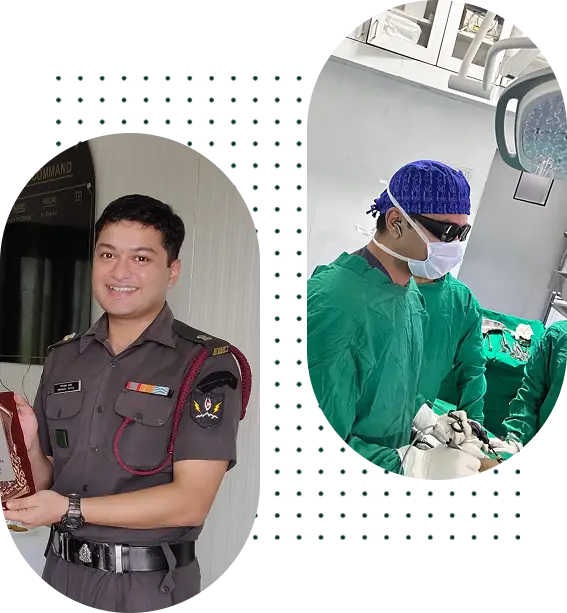Ovarian Cancer Doctor in Kolkata
Maybe it’s gas. Or hormone issues. You ignore it.
But what if it’s something more serious?
Ovarian cancer starts with minimal signs—bloating, discomfort, appetite loss, etc., that most women think is “normal stuff”. If these symptoms persist, visit Dr. (Maj) Ranajoy Dutta, a respected ovarian cancer surgeon in Kolkata, known for his compassionate care and expertise in treating gynaecological cancers.
What Is Ovarian Cancer?
Need personalised advice? Schedule a consultation with Dr. Dutta for top-notch ovarian cancer treatment in Kolkata.

Ovarian Cancer Types

Epithelial Ovarian Cancer
The most common type, originating in the cells that cover the surface of the ovaries.

Germ Cell Tumors
These cancers arise from the cells that produce eggs in the ovaries and are more common in younger women.

Stromal Cell Tumors
These rare cancers develop in the ovarian tissue that produces hormones like estrogen and progesterone.

Low-Grade Serous Carcinoma
It is a slower-growing, less aggressive form of epithelial ovarian cancer that typically has a better prognosis.

Clear Cell Carcinoma
It is a rare and aggressive form of epithelial ovarian cancer that tends to be resistant to chemotherapy.
Ovarian Cancer Causes

Call for Appointments
Begin your treatment journey with expert care. Schedule your appointment with Kolkata’s esteemed cancer specialist Dr. (Maj) Ranajoy Dutta today.

Ovarian Cancer Symptoms
Frequent urination or bowel habit changes

Ovarian Cancer Diagnosis

Pelvic and abdominal ultrasound

CA-125 blood test

CT/MRI scans

Laparoscopy
Ovarian Cancer Treatment in Kolkata
Your treatment plan is about choosing the right approach based on your age, overall health, ovarian cancer types, and how far it has spread. Dr. (Maj) Ranajoy Dutta may recommend a surgical procedure in the early stages to remove only the affected ovary and nearby tissue.
In more advanced cases, a full hysterectomy might be needed, combined with chemotherapy, targeted therapy, and hormone therapy.
If you’re younger and want to preserve fertility, fertility-sparing surgery (FSS) is an option.
Book an ovarian cancer treatment planning session with Dr. Dutta and explore your options without pressure.
Fill The Form
Contact Form

Make Appointment &
Take Care Of Your
Healthy Life

